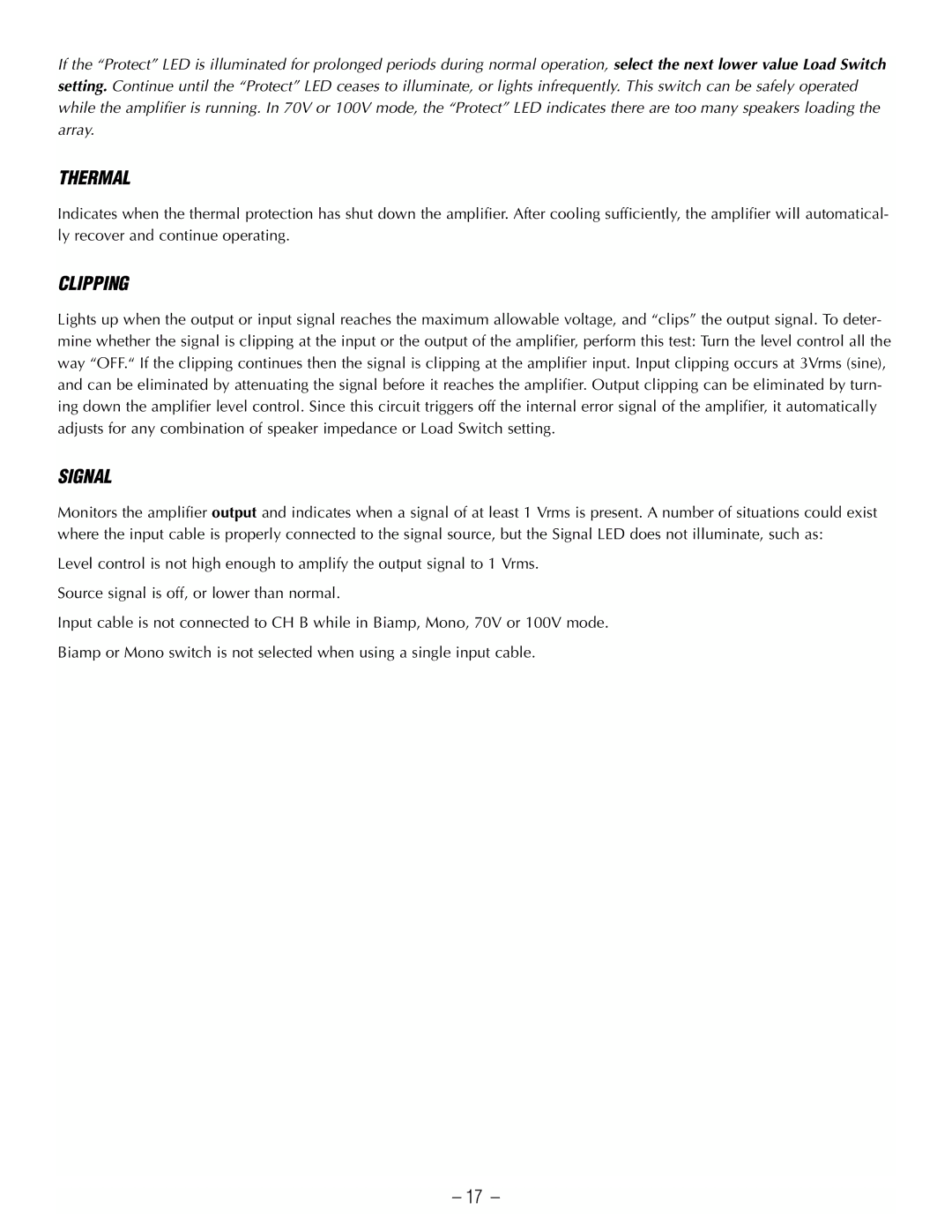If the “Protect” LED is illuminated for prolonged periods during normal operation, select the next lower value Load Switch setting. Continue until the “Protect” LED ceases to illuminate, or lights infrequently. This switch can be safely operated while the amplifier is running. In 70V or 100V mode, the “Protect” LED indicates there are too many speakers loading the array.
THERMAL
Indicates when the thermal protection has shut down the amplifier. After cooling sufficiently, the amplifier will automatical- ly recover and continue operating.
CLIPPING
Lights up when the output or input signal reaches the maximum allowable voltage, and “clips” the output signal. To deter- mine whether the signal is clipping at the input or the output of the amplifier, perform this test: Turn the level control all the way “OFF.“ If the clipping continues then the signal is clipping at the amplifier input. Input clipping occurs at 3Vrms (sine), and can be eliminated by attenuating the signal before it reaches the amplifier. Output clipping can be eliminated by turn- ing down the amplifier level control. Since this circuit triggers off the internal error signal of the amplifier, it automatically adjusts for any combination of speaker impedance or Load Switch setting.
SIGNAL
Monitors the amplifier output and indicates when a signal of at least 1 Vrms is present. A number of situations could exist where the input cable is properly connected to the signal source, but the Signal LED does not illuminate, such as:
Level control is not high enough to amplify the output signal to 1 Vrms.
Source signal is off, or lower than normal.
Input cable is not connected to CH B while in Biamp, Mono, 70V or 100V mode.
Biamp or Mono switch is not selected when using a single input cable.
– 17 –
